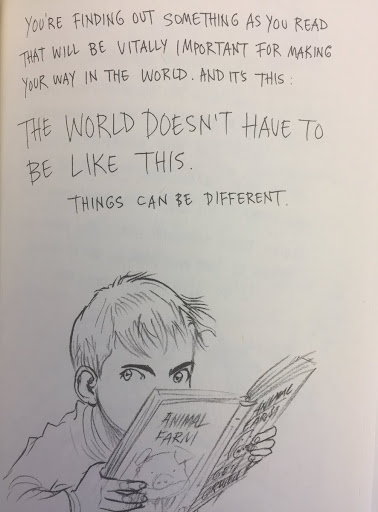When you write as a freelancer, the pluses can often outweigh the negatives: you can work from anywhere, you decide what to write, you can cultivate strong relationships with editors around the world, and your revenue can surpass a fixed income you earn from a traditional salary.
But going freelance comes up with a slew of hurdles to manage, especially if you’re new to contractual work. I’ve faced these uphill battles more than once, and today I wanted to help you overcome them with some advice I wish I had known when I began to freelance more than 12 years ago.
Challenge #1: The ugly imposter syndrome
As I wrote in a post last year, imposter syndrome amounts to a hissing whisper that encourages you to give up on your dreams, reminding you how you’re not that talented anyway, and everyone will eventually see you for the phony writer you’ve become.
It’s drivel and it’s painful, but often can’t just be flicked away like snow on the brow. What you have to do with this spiral into self-hate is work diligently on your craft, develop new skills regularly, in some way. Maybe you take an online course on writing, or you find a new interview source in the field you work in, or you pitch editors a really solid idea that earn you inspiring feedback, even if the pitch is rejected.
I also like what author Anne Lamott wrote in Bird by Bird about quieting those voices aiming to defeat your writing sessions with critical and barking accusations: Picture them as mice you drop into a jar. Then imagine there’s a volume-control button on the jar, and turn it all the way down to dismiss those “angry, neglected, guilt-mongering voices.” Then watch “the frantic mice lunge at the glass, trying to get to you. Leave it down, and get back to your shitty first draft.”
Challenge #2: Feast or famine.
I’m sure you’ve heard this refrain before: As a freelancer, you feast on lucrative weeks and starve on dry weeks. Actually, it’s not as stark as that, but there is some truth to this warning. You’ll enjoy weeks if not months of revenue-generating work, and it will seem like you entered the rare chamber of flowing commerce. But another week or month will see few pitches accepted, rarely any editors contacting you for gigs, and a week of rice and beans ahead. But it’s not like you just have to wallow in a big bowl of meh during those slower weeks.
What I often do during those spotty weeks is ramp up my marketing campaigns. Whether for my coaching courses or my journalistic opportunities, I’ll double-down on social postings and running Facebook Ads. I’ll nudge a few editors I haven’t heard from in ages, and also use LinkedIn to contact brand managers I know from friends of friends.
Most importantly, I’ll use any downtime to develop my skills, such as reading books and listening to podcasts about journalism. Or I’ll work on my creative projects, which still flex my writing muscle and keep me disciplined.
Just because you’re facing a less lucrative month doesn’t mean you can’t do something to grow your freelance business.
Challenge #3: Negotiating rates.
I used to think asking for a higher fee would push me out of whatever inner circle of freelance journalism I thought I was in. Will I sound greedy or ungrateful?
After a year of just accepting whatever rate was given to me, I decided to push back. I strongly doubted any editor would revoke my assignment, and I realized the worst that would happen would be a quick “Nope!” and I’d still have the assigned fee.
To my delight, many editors have been aggregable to rate negotiations, which further suggested to me I was a dependable freelancer these editors valued. And that’s the thing with rates: If you truly believe you are worth $1/word, you should be requesting that fee. And the opposite holds true as well: If you’re just beginning your freelance career, you may not be in a position to ask for more money. You have to earn that pay raise.
But you shouldn’t let fear stifle your levelling up; otherwise, you’ll be stuck in 25 cents/word purgatory for longer than you should be.
Challenge #4: Self-discipline.
One of the toughest—but also appealing—aspects of freelance writing is schedule flexibility. Want to spend Monday seeing your family, and then make up for it on a weekend? No sweat! Sleep in on Friday morning until 10? Do you, friend!
As delicious as that flexibility can be, it can also be dangerous. You have to treat freelance writing like any job, albeit with pockets of downtime that a traditional career may not afford you. That means putting your bum in the seat early in the morning, getting your work done with minimal distraction, and ensuring you meet the deadlines set by your by editors or brand managers.
That may seem Captain Obvious but in my early days of freelancing, I slipped too often into the comfort of my own couch and snacking when I wanted. Working from home has its benefits but it can also foster lazy habits. That’s why I joined a work-sharing space soon after being a full-time freelancer; it provided a discipline and structure to my work week. I didn’t have the distractions of snacks, books, TV and my recliner when I was at my work-sharing space.

Challenge #5: The loneliness factor.
Similar to instilling discipline into your schedule, you have to “get out there” as a writer to combat the loneliness you may feel. Being alone as a writer isn’t all that surprising, but if you transitioned from a full-time in-office job to solo contractual work, you could miss chatting with colleagues, lunch with friends, after-work drinks, etc.
Joining a work-sharing space can help alleviate that loneliness, but you should also consider another two-pronged approach: getting as many in-person assignments as possible, and networking with other writers.
When I started getting assignments from The Toronto Star to write about GTA businesses, every profile required in-person interviews. Pounding the pavement was something I cherished, after many years of conducting interviews by phone or email, exacerbated even more during the pandemic. To chat with someone in person can momentarily whisk away those lonely vibes, even just for a couple hours.
Networking with other writers may be trickier during the pandemic, but joining online groups has been helpful for me. From Facebook to LinkedIn to reddit, groups of freelance writers can regularly support each other, suggest answers to your questions, and even become a place where you can foster online friendships with other writers. And once you’re comfortable doing so, meeting one of those fellow freelancers for lunch or a coffee can go a long way in making you feel seen and building necessary connections.
Also, you never know when that writer may want to collaborate with you on a major project, or suggest to you editors worth pitching.
You’ll face other challenges on your way to becoming a successful freelance writer, so if you’re looking to level up your skill level and business acumen, consider enrolling in one of my 1-on-1 courses for freelance journalists. You can also contact me anytime if you have questions about my coaching services. Happy writing!





